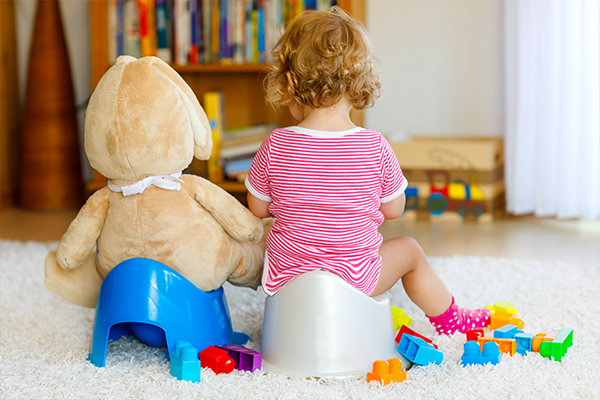Potty training is a significant milestone in your child's development, but it can also be a daunting task for parents. With the right approach and a lot of patience, you can make this transition smooth and stress-free. Here’s a comprehensive guide to help you navigate the world of potty training.
When to Start Potty Training
Every child is different, and there’s no one-size-fits-all answer to when you should start potty training. However, most children show readiness between 18 months and 3 years of age. Look for these signs to determine if your child is ready:
- Staying dry for at least two hours during the day or after naps
- Showing interest in adult bathroom habits
- Communicating when they need to go
- Disliking dirty diapers and wanting to be changed
- Demonstrating the ability to follow simple instructions
Preparing for Potty Training
Preparation is key to successful potty training. Here are some steps to get started:
- Choose the Right Potty: Decide whether you’ll use a potty chair or a potty seat that fits on your regular toilet. Let your child help pick it out to increase their interest.
- Introduce the Concept: Start talking about potty training and what it involves. Read books or watch videos about using the potty to familiarize your child with the process.
- Set Up a Routine: Encourage your child to sit on the potty at regular times throughout the day, such as after meals or before bedtime, even if they don’t need to go.
The Potty Training Process
-
Step-by-Step Guide:
- Consistency: Consistency is crucial. Choose a period when you can dedicate time to the training without many interruptions or travel.
- Clothing: Dress your child in easy-to-remove clothing to make it easier for them to use the potty independently.
- Encouragement: Encourage your child to sit on the potty regularly. Praise them for trying, even if they aren’t successful every time.
- Rewards: Consider using a reward system, like stickers or small treats, to motivate your child.
-
Dealing with Accidents: Accidents are a natural part of potty training. Stay calm and avoid punishment. Instead, reassure your child that accidents happen and remind them to use the potty next time.
-
Nighttime Training: Nighttime potty training often takes longer. Wait until your child stays dry during the day before tackling nighttime training. Use waterproof mattress protectors and consider waking your child for a bathroom trip before you go to bed.
Tips for Success
- Patience and Positivity: Stay patient and positive. Celebrate small victories and avoid showing frustration.
- Listen to Your Child: Pay attention to your child’s cues and don’t force the process if they seem resistant. Sometimes, taking a break and trying again later can be beneficial.
- Be a Role Model: Children learn by watching. Let your child see you using the toilet and explain what you’re doing.
- Involve Other Caregivers: Ensure that anyone who cares for your child is aware of your potty training methods and routines to maintain consistency.
Common Challenges and Solutions
- Resistance to Using the Potty: If your child resists using the potty, they may not be ready. Give it some time and try again later.
- Fear of the Toilet: Some children are afraid of the toilet. Use a small potty chair to help them feel more secure.
- Regression: It’s common for children to regress, especially during times of stress or change. Be supportive and gently guide them back to using the potty.
Potty training is a major step in your child’s independence and development. With patience, consistency, and encouragement, you can help your child navigate this milestone successfully. Remember, every child is unique, and the process may take time. For more helpful tips and advice on parenting, visit our blog section at Cocobellystore.com. Happy parenting!




Commenta
Nota che i commenti devono essere approvati prima di essere pubblicati.
Questo sito è protetto da hCaptcha e applica le Norme sulla privacy e i Termini di servizio di hCaptcha.